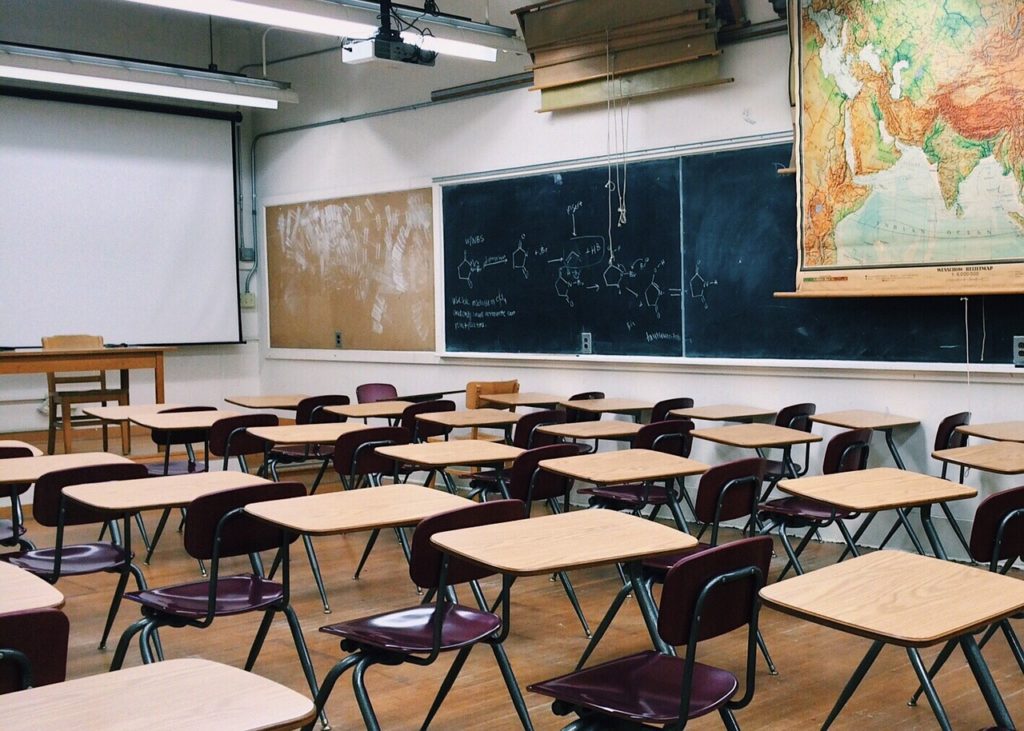Basic personal financial skills help us to lead secure and happy lives. Understanding the fundamentals of budgeting, saving, investing, and managing debt impacts our life in an incredibly profound way and can mean the difference between struggling financially and finding lasting security.
Many individuals are forced to learn the basics of personal finance through trial and error, while others learn from their friends and family members or by pursuing financial education. Recently, there has been a push to require personal finance education in school, ensuring that everyone has at least a foundation for managing their money.
Americans Want Personal Finance Education in Schools
According to a recent survey conducted by Credit Karma and Qualtrics, 63 percent of respondents said that personal finance should be taught in public schools. Interestingly, the respondents were not in agreement over when this information should be taught.

Thirty percent of these respondents said the classes should begin in elementary school, 33 percent replied middle school, and 32 percent said high school. Only 5 percent said financial education should take place in college. While there is no agreement about when this education should happen, there was a clear majority pushing for more formal personal finance classes.
Altogether, 77 percent of respondents said that they think politicians should push for more financial education in schools, and 67 percent said that including mandatory personal finance education in public schools on a political platform would influence how they vote. The surveyors also found that respondents largely felt they did not themselves have adequate financial education and would be willing to give up things like vacation days, morning coffee, and dating apps in return for having a better foundation for personal finance.
The Problems That Come with Poor Financial Literacy
While these following examples may sound extreme, the consequences of poor finances remain a major cause of stress for Americans, even among high-net-worth individuals.
Lack of savings and mounting debt does not only create daily stress, but it can also lead to poor health, depression, and relationship problems. Currently, almost half of all Americans do not have enough cash available to cover a $400 emergency, which makes the prospect of a medical emergency or loss of employment potentially devastating.
Furthermore, millennials are launching careers with a combined $1.52 trillion in debt (largely from student loans), which inhibits their ability to save. If millennials understand their options for paying for college and learn how to save even with a limited income, they can avoid financial hardship in the future.
The financial situation in the United States is actually quite dire—about a third of adults having nothing saved for retirement. Presently, each person needs at least $1 million to spend 30 years retired.
One of the hurdles many people experience is not understanding the value of compounded interest over time, which discourages them from starting to save early. Furthermore, 38 percent of households have credit card debt—an average of $16,000. Some debt, such as a mortgage, can be considered good because it builds equity and has low interest, but credit cards have extremely high interest rates that make them challenging to pay off, plus they come with no equity.
The Benefits of More Formalized Personal Finance Education
More than half of the millennials who responded to the Credit Karma survey said that their knowledge of personal finance has held them back from making financial progress.
Importantly, financial education has real, tangible benefits, such as promoting good savings habits and teaching the value of budgeting as a means of controlling spending and living within limits. With smarter financial decisions, individuals have better credit scores, which helps them to attain affordable apartments and lower their future debt with better interest rates. An excellent credit score ultimately means saving thousands of dollars in interest over the course of a lifetime.

Furthermore, people’s attitudes about money help to shape their character. Personal finance education empowers people to understand money management and have more positive attitudes toward money. Ultimately, this can drive a greater desire to give back, meaning financial education could have a societal benefit. Also, less debt is better overall for the economy. Financial education can help people to secure better jobs and engage more fully with the economy instead of focusing on paying back debt and living paycheck to paycheck.
The Question of How to Get a Financial Education
The main reason for bringing financial education to schools is that many people do not have other opportunities for learning about the basics of money management. While some schools now offer these classes, they are often electives that not every student takes.
Only 12 percent of the Credit Karma survey respondents said that they learned about personal finance from teachers. Forty-one percent said that they learned themselves, which often involves trial and error and can lead to financial issues that could otherwise be avoided. Meanwhile, 37 percent of respondents said they learned from their parents, but this is also problematic because not everyone has someone in their life capable of teaching such skills.

